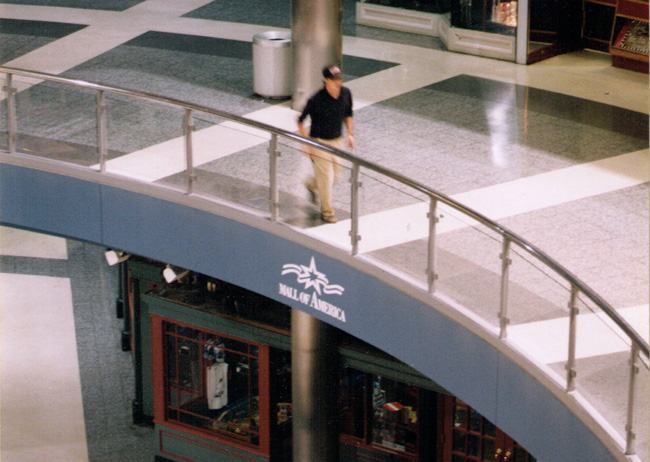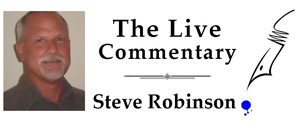
Two recent business stories caught my attention, and while they might appear to be unrelated I saw a convergence.
 The first story was geared toward investors who need to be alert to trends that might herald the rise or fall of businesses and business segments. The article proclaimed the death of the shopping mall, that sterile, you-could-be-in-Orlando-or-Oshkosh symbol of American commerce. The mall, said the article, belongs to a bygone era, a time when people not only went to stores to see, feel, hear and, yes, smell the merchandise, but used the mall as a place to gather—to meet friends and chat and chuckle over a bad egg roll or gelatinous Sbarro’s pizza slice at the food court. It’s what the Greeks called the agora, the gathering place where news was passed and goods were bought and sold.
The first story was geared toward investors who need to be alert to trends that might herald the rise or fall of businesses and business segments. The article proclaimed the death of the shopping mall, that sterile, you-could-be-in-Orlando-or-Oshkosh symbol of American commerce. The mall, said the article, belongs to a bygone era, a time when people not only went to stores to see, feel, hear and, yes, smell the merchandise, but used the mall as a place to gather—to meet friends and chat and chuckle over a bad egg roll or gelatinous Sbarro’s pizza slice at the food court. It’s what the Greeks called the agora, the gathering place where news was passed and goods were bought and sold.
The second item was about the multi-billion-dollar purchase of a company called Oculus by that juggernaut of social media, Facebook. Oculus, the brainchild of the improbably named Palmer Luckey, a 21-year-old, is in the business of creating headsets to enable voyages into virtual reality, which, I was informed, “offers the illusion of being physically present in a digital world.” Why this would be a desirable state of affairs was left unexplained. A lot of people I know, and I suspect you do too, find being physically present in the real world quite enough of a challenge.
While I reluctantly have a Facebook page, I quietly suspect that Facebook is a colossal practical joke played on an unsuspecting planet by Mark Zuckerberg—a fiendishly clever way to gather intimate data on everyone alive in order to suit some nefarious purpose that only he knows. As for Oculus, on the day after the news broke I was playing golf with two gentlemen who had spent their working lives in the high-tech world. When I mentioned the Oculus deal, one of them remarked that the only application for virtual reality is for games. Imagine, he laughed, measuring the worth of your life by realizing that you have enabled billions of people to while away hours on end playing games.
The inventors of Scrabble and Monopoly might have something to say on that subject, but my friend’s point was well taken. (He was also cautioned by another member of our golf foursome that assessing our value to humanity might not be the best discussion topic for a group of able-bodied, middle-aged men playing 18 holes on a Thursday morning.)
Research shows that 40 per cent of all the hours spent online on any given day are spent playing games. Since most of the remaining time is spent viewing pornography, if you are reading this column you are indeed a rare bird. So, while he is capturing our digital taxonomies, Zuckerberg also seems intent on coaxing us into a world that seems real, but doesn’t really exist. It’s a world so mesmerizing that we will apparently succumb of our own accord, and in due course many dollars will flow from our pockets into Mr. Zuckerberg’s.
Now, I ask you: What hoary American phenomenon does that sound like? If you said “shopping malls,” well, you and I are on the same page—or screen, just to keep this digital. In the virtual reality of the mall, it is always 72 degrees with moderate humidity, whether you are enduring a Minneapolis winter or a Miami summer. You know exactly where FootLocker stocks the Nikes and the Steelers jerseys whether you are in Pittsburgh or Pasadena. And The Gap is there to welcome you with an avalanche of soft-washed khaki whether you are in Charlotte, Cheyenne or Shaker Heights. And you are almost certain to leave with your wallet lighter than when you entered.
If the email I received was correct and we are witnessing the twilight of the shopping mall, the holes these concrete behemoths leave behind on the landscape will be about more than real estate. As we enter this strange virtual world in which people only seem to relate to one another, we will move farther away from the sort of human contact—sitting with friends around a table with coffee and a cinnamon twist–that we are only now learning to cherish. It is entirely possible that we will become nostalgic for malls as lost relics of interpersonal relations, alongside the courthouse square, the barber shop and the neighborhood bar.
I must also admit that when it comes to trends I have always been resolutely behind the curve. Having missed the ’90s golf craze by a couple of decades, I took it up only this past summer. I have not played a computer game since a barroom encounter with Pacman sometime back in the ’70s. Mark Zuckerberg’s net worth is approaching $30 billion and mine is, well, not. So I may not be the oracle you are seeking when it comes to the next searing-hot trend. But I insist that nothing beats the touch of a real hand on a real arm, even if the encounter takes place over a giant salted pretzel at the food court.
![]()
Steve Robinson moved to Flagler County after a 30-year career in New York and Atlanta in print, TV and the Web. Reach him by email here.





























Steve Wolfe says
Point well taken, Steve. My own perspective is that the virtual world is robbing a generation of the real world of human contact. While they learn the skills to be effective through servers and routers, they are failing at learning human social skills through casual and necessary contact. I think it leaves that generation ill-prepared for employment, even though much of what they may do is web related. It also leaves them less prepared for family life, or any other intimacy with flesh and blood. It also teaches false lessons about the at large world, which many have acted on with tragic results. But it is at the same time teaching them how to shape their world according to what they have embraced. The question is where it leads them and their children. If we could travel forward in time, I think we would be as bewildered in the society of 300 years hence as the people of the 1700’s would be with our present. I just hope that they are still around, still know how to ensure their survival and still have compassion for children. I also hope their world isn’t like the virtual one their futuristic games portray: cold, deadly, and hopeless.